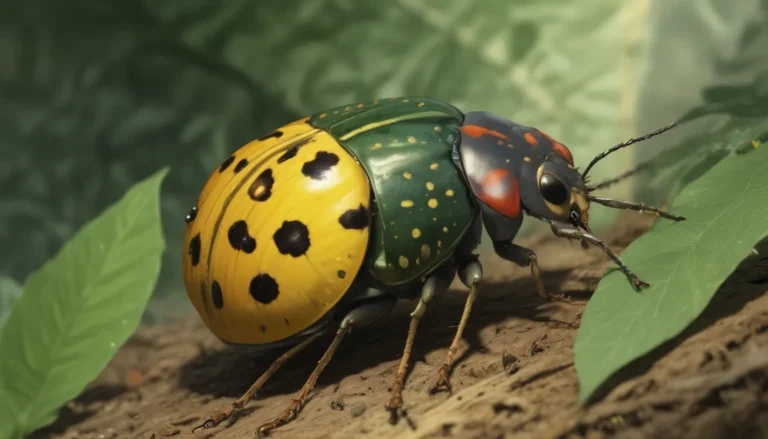How to Effectively Use Anise as a Natural Pest Repellent in Your Garden

Are you tired of battling pesky garden pests with harsh chemicals? Look no further than anise (Pimpinella anisum), a versatile and effective companion plant that can help you control insects organically. In this comprehensive guide, we’ll explore the various ways you can incorporate anise into your gardening routine for pest control and more. So, grab your gardening gloves and let’s dive in!
Why Choose Anise as a Pest Repellent?
Imagine a bustling garden teeming with life, only to be invaded by unwelcome critters that threaten to decimate your plants. It’s a situation no gardener wants to face. Fortunately, anise comes to the rescue as a natural pest repellent, offering a chemical-free solution to keep your garden thriving.
What You’ll Learn:
- Pest Species Anise Repels: Discover the common pests that anise can help repel from your garden.
- How to Use It as a Companion Plant: Learn practical tips on incorporating anise into your garden layout effectively.
- What Makes It So Effective: Explore the science behind anise’s pest-repelling properties.
- Star Anise vs. Anise: Understand the difference between these two plants and their insecticidal properties.
- Additional Benefits: Uncover the various uses of anise beyond pest control.
Pest Species Anise Repels
Anise proves to be a valuable ally in the fight against garden pests. Studies have shown its effectiveness against a wide range of insects, including:
- Red Flour Beetles
- Confused Flour Beetles
- Southern House Mosquitos
- Green Peach Aphids
- Tobacco Cutworms
- Currant Lettuce Aphids
- Spider Mites
- Nematodes
- Cabbage Worms
By strategically planting anise in your garden, you can create a pest-resistant environment that promotes plant growth and protects your crops naturally.
How to Use It as a Companion Plant
If you’re looking to harness the power of anise as a companion plant, consider these practical tips for maximizing its pest-repelling benefits:
- Plant Placement: Position anise plants within two feet of the susceptible area to deter pests effectively.
- Companion Planting: Mix anise with other plants to create a diverse and pest-resistant garden ecosystem.
- Trap Cropping: Use anise as a trap crop to attract pests away from valuable plants and protect your garden.
By incorporating anise into your gardening strategy, you can create a harmonious environment that promotes plant health and deters unwanted pests.
What Makes It So Effective?
The secret behind anise’s pest-repelling properties lies in its main compound, (E)-anethole. This chemical not only gives anise its distinct flavor but also acts as a natural insect deterrent. By leveraging the power of (E)-anethole, you can create a pest-free garden that thrives without the need for harsh chemicals.
Star Anise vs. Anise
While both anise and star anise share similar properties, they differ in plant characteristics and insect-repelling abilities. Star anise, with its insecticidal properties, offers an alternative companion plant for gardeners seeking natural pest control solutions. By understanding the unique benefits of each plant, you can tailor your pest management strategy to suit your garden’s needs.
What Else Can Anise Do?
Beyond its pest-repelling properties, anise offers a host of additional benefits that make it a versatile and valuable garden companion:
- Beneficial Insects: Anise attracts beneficial wasps and butterflies, creating a balanced ecosystem that supports pollination and pest control.
- Trap Cropping: Use anise as a trap crop to lure pests away from valuable plants and protect your garden from infestations.
- Culinary and Medicinal Uses: Explore the culinary and medicinal uses of anise, from flavorful dishes to soothing herbal remedies.
By embracing anise as a multifunctional garden ally, you can enjoy a pest-free garden that thrives naturally and sustainably.
Unlock the Full Potential of Anise in Your Garden
Anise isn’t just a pest repellent – it’s a game-changer for gardeners seeking a holistic approach to pest control. By incorporating anise into your garden layout and leveraging its diverse benefits, you can create a thriving garden ecosystem that supports plant growth, biodiversity, and sustainability. So, whether you’re battling persistent aphids or seeking to attract beneficial insects, anise has got you covered. Let’s harness the power of this unsung hero and transform your garden into a pest-free paradise!
Let’s chat: What pest problems are you facing in your garden? Share your challenges in the comments, and let’s explore how anise can help you overcome them. Together, we can create a healthy and vibrant garden that flourishes naturally.
If you’re eager to explore alternative pest control methods and discover the benefits of companion planting, be sure to check out our other guides on:
- Marigolds for Pest Control
- Garlic as Pest Control in the Garden
- Chrysanthemums for Pest Control in the Garden
Remember, a thriving garden starts with a strategic pest management plan and the right companions by your side. Embrace the power of anise and unlock the full potential of your garden’s natural pest control system.





